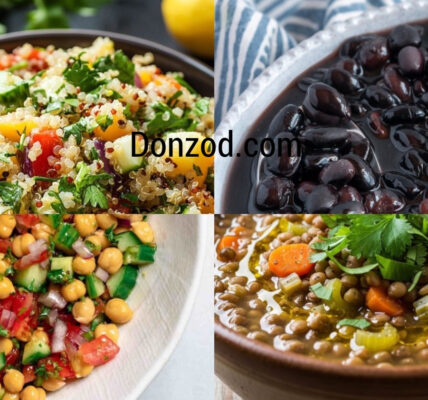Cassava is one of the most important root crops in the world today. Many people in Africa, Asia, and Latin America depend on it for their daily food supply. Some call it yuca, others call it manioc, but whatever name you use, it is the same crop.
It has been grown for centuries, and it continues to serve as a lifeline for millions of families. Even though it may look like a simple tuber and full of nutritional qualities that deserve attention.
Understanding the nutrition value helps us to see why it remains such an essential food crop across different cultures.
Cassava is a starchy root vegetable. It grows in tropical climates and is known for being able to survive in poor soils and dry conditions where other crops may fail. That is one reason why many countries rely on it for food security.
The root has a brown outer skin with white or sometimes yellowish flesh inside. It can be boiled, fried, roasted, or dried into flour for making meals like garri, fufu, tapioca, and even baked goods.
Although has its strengths, it also requires proper processing before it is eaten.
Raw cassava contains naturally occurring cyanogenic glycosides, which can produce cyanide when consumed in large amounts. If it is not properly prepared, can be harmful. This is why people soak, ferment, or cook it well before eating. Once processed correctly, becomes safe and provides important nutrients.
Cassava as an Energy Powerhouse
One of the main reasons cassava is highly valued is its high carbohydrate content.
In fact, it is considered one of the richest sources of starch among root crops. A 100-gram serving of cassava root contains about 160 calories, which comes mostly from carbohydrates.
For many rural communities where people do not have access to modern foods, it provides the daily energy they need to work, farm, or go to school.
The carbohydrate in cassava is mostly in the form of starch, which the body breaks down to glucose. This makes it an excellent energy source for those who need affordable calories.
It is low in protein compared to other foods. Because of this, it is always advisable to be eaten along with protein rich foods such as beans, fish, or meat to balance the diet.
Fiber Content of Cassava
Cassava also provides dietary fiber. Fiber is the part of plant food that the body does not digest but still plays an important role in health.
It helps in keeping the digestive system moving smoothly, prevents constipation, and gives a sense of fullness after meals. This makes a good choice for people who want to improve bowel movement.
Even though cassava does not have as much fiber as some other root crops, it still contributes a fair amount. Eating cassava flour or boiled cassava as part of daily meals can therefore improve digestion and reduce problems like bloating.
Vitamins Contents
Cassava root itself is not very rich in vitamins compared to vegetables or fruits. However, it still provides some important ones. It contains small amounts of vitamin C, which is known for boosting immunity, healing wounds, and protecting the body against infections.
Another important fact is that cassava leaves, which are sometimes eaten as a vegetable, are much richer in vitamins than the root. The leaves contain vitamin A, vitamin C, and folate. In Nigeria and some African countries, the leaves are cooked and eaten just like spinach, adding variety to cassava based meals.
Minerals Contents
Cassava provides minerals such as calcium, magnesium, and potassium. These minerals support different functions in the body.
Calcium keeps the bones and teeth strong. Magnesium helps in nerve function and energy production. Potassium regulates blood pressure and maintains balance in body fluids.
Although does not supply very high levels of these minerals, the amounts it gives still contribute to daily needs. For communities where food variety may be limited, cassava serves as one more source of minerals that are essential for healthy living.
Gluten Free as an Advantage
One interesting fact about cassava is that it is naturally gluten free. This makes it a safe food for people with some diseases that are gluten intolerance. Cassava flour, which is made by grinding dried cassava root, is often used as an alternative to wheat flour in baking.
It allows people with gluten sensitivity to enjoy bread, cakes, and pancakes without worry. In recent years, this has made cassava popular even in countries where it was not traditionally consumed.
Weight Concerns
Because cassava is high in carbohydrates, some people may worry about weight gain. It is true that eating in large amounts can provide a lot of calories.
However, when eaten moderately and combined with vegetables and proteins, it can be part of a healthy diet. The fiber in cassava also helps in controlling appetite.
People trying to manage their weight should focus more on portion size and food combination rather than cutting cassava completely out of their meals.
For example, a plate of boiled cassava served with beans stew and vegetables is far healthier than eating only fried cassava snacks in large amounts.
The Role in Food Security
Cassava is not just about individual nutrition. It is also about feeding nations. Because it grows well in poor soils and resists drought better than many crops, it is often called a rescue crop. When other crops fail due to bad weather, cassava still produces food. This makes it a reliable crop for communities vulnerable to hunger.
Its nutritional value may not be as complete as that of rice, maize, or wheat, but its ability to supply energy and survive harsh conditions makes it very important.
Cassava as an Everyday Meal Diet
In Nigeria and many African households, cassava is eaten almost every day.
Garri which is made from fermented and roasted cassava granules, is a common staple. It can be soaked in water with sugar and milk for a quick meal or cooked into a dough like food called eba, eaten with soup.
These different preparations show how versatile. No matter the culture, people find creative ways to turn cassava into delicious meals while still gaining its nutrition.
In Conclusion
Cassava is much more than a simple root crop. It is an energy rich food that feeds millions of people every single day.
From its high carbohydrate content to the fiber, vitamins, and minerals it provides, Also remains a valuable food resource. While it may not be the most nutrient dense crop in the world, its role in providing affordable calories, supporting food security, and serving as a gluten free option cannot be overemphasized.
However, should always be eaten as part of a balanced diet. Its low protein level and the risk of toxins in raw form mean it must be processed and combined with other foods. When prepared well and consumed wisely is both safe and beneficial.




